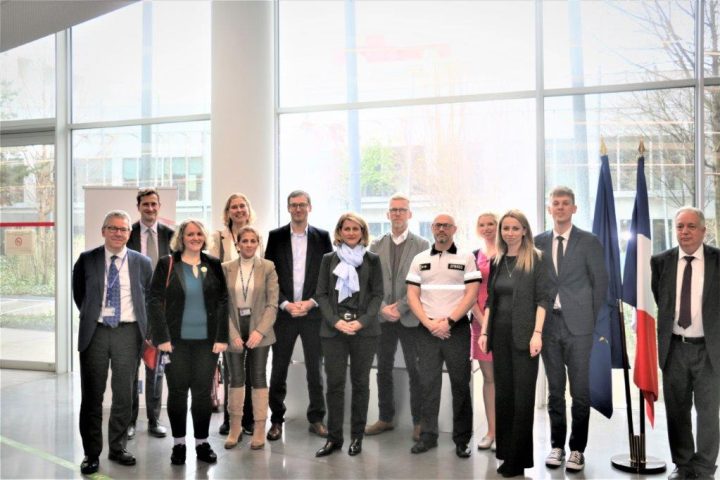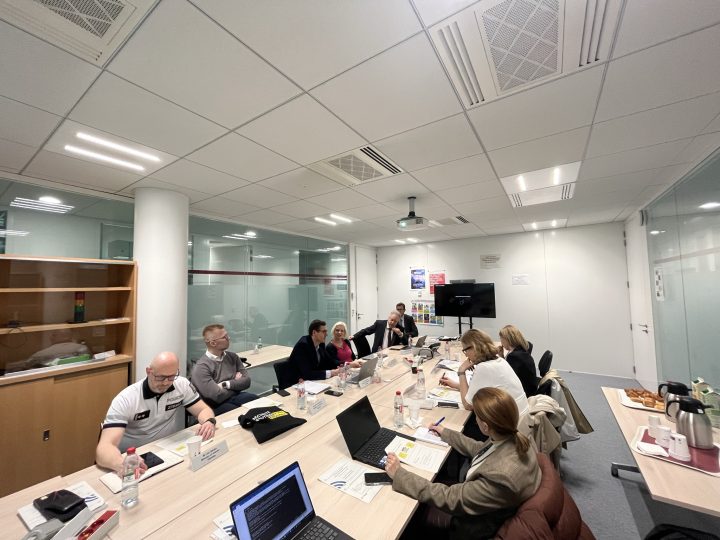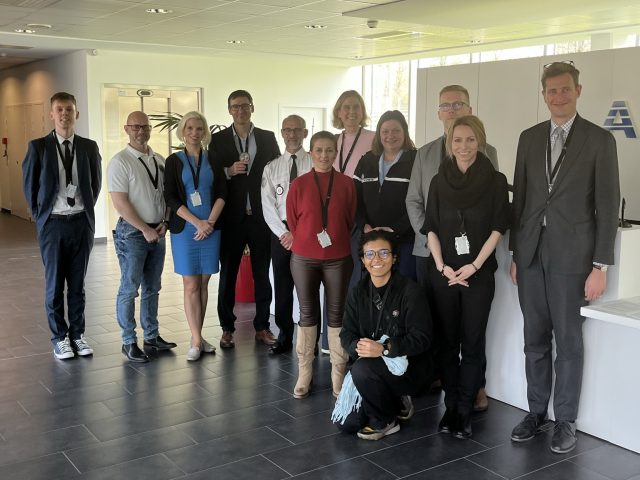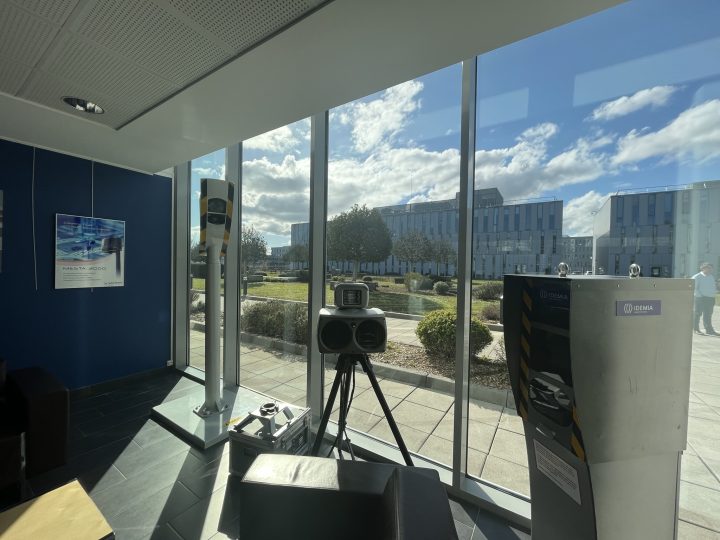France study visit on automated speed enforcement 2024

A delegation with representatives from the Ministry of Transport and the Ministry of Interior of Czechia, the Traffic Police in Malta, and the European Commission, accompanied by ETSC, participated in a study visit on the topic of automated speed enforcement in France on 13-14 March 2024.
The visit was co-organised with the Delegation for Road Safety of the French Ministry of Interior and supported by the National Processing Centre (CNT) in Rennes as part of the EU Road Safety Exchange project. The French Interministerial Delegate for Road Safety, Ms. Florence Guillaume welcomed the delegation at the premises of the ministry.
On the first day, delegates got to understand the long experience with speed management in France, including monitoring, evaluation, and how this helps gear the public policy decisions and the build-up towards an automated speed enforcement system. Discussions focused on automated speed cameras and public acceptability, with Czech and Maltese representatives sharing their experience on these topics.
Later presentations focused on the technical aspects of the French automated speed enforcement system: specifically discussing legal requirements and practical processes of the entire system and the functioning of the CNT in Rennes. A lot of focus was put on the financial and judicial procedures involved, which are key to allowing the French system to work efficiently.
One remarkable particularity of the French system is that the money resulting from the traffic fines goes to a separate account in the national budget and is reinvested exclusively in road safety measures, including new equipment for traffic violation detection, road infrastructure maintenance etc.


The second day of the visit took place at the National Processing Centre CNT in Rennes. The centre manages – among others – the handling of automated traffic offences from speed cameras and red-light cameras. It is under the responsibility of the French Ministry of the Interior.
The National Treatment Center (CNT) employs staff belonging to several public and private entities, including: the Rennes public prosecutor’s office dedicated to ANTAI’s processing chains; the Automated Center for Reporting Road Offenses (CACIR); the services of the Public Prosecutor’s Office (OMP) of the CNT. It also hosts several private companies involved in automated processing: IT operators, equipment manufacturers, call centres, etc.
Participants were able to see on the ground how the entire automated process functions, following ‘the path’ of a fine. These procedures involve the processing, reading, and ensuring transcription of offence messages, checking and validation of the offences, confirming offences, printing and sending traffic violation notices, and analysing appeals through the Public Prosecution Office.
Around 17 million letters for speeding offences were sent in 2023. Information and simplification of administrative procedures are ensured through the ANTAI website and the call centre.

Good practices presented by French partners highlight the importance of a well-established enforcement network to ensure that drivers respect traffic rules and know their responsibility on roads. The Czech delegation and the French hosts were keen to continue the sharing of good practices in improving the automated speed enforcement framework and appreciated the role of the exchange project in pushing forward progress and finding solutions to common issues.